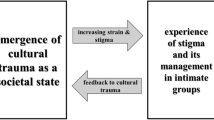Abstract
Power disparities that inform some early English accounts of heaven and hell are sustained by modern medievalisms and medieval studies. Genesis B, Bede’s Ecclesiastical History, and Felix’s Life of St Guthlac describe devils and the damned as individuals who challenge the social order and therefore suffer expulsion. Comparatively, Medievalists of Color such as Adam Miyashiro and Mary Rambaran-Olm record similar exclusionary tactics constraining academia. Critically observing the cultural constructedness of exclusive establishments such as heaven and academia reveals transhistorical, patriarchal apparatuses of oppression. This article aims to dismantle both the historical erasure of People of Color and dominant ideologies that reduce marginalized individuals to abstract others, including the damned in early English texts. Narratives of resistance, such as the Devil in Genesis B and accounts by modern Medievalists of Color, employ radical passivity as a rhetorical device that incites empathy. Detailing frustrations with apparatuses of oppression amounts to an act of agency that renders restriction a site of revolt.
Similar content being viewed by others
Notes
I am grateful to the editors and the anonymous reviewers for their kind, critical feedback on multiple drafts. Any remaining errors are my own.
Lucifer is the most powerful of angels. Satan is the rebel angel who was jettisoned to hell. I use ‘Devil’ to refer to both Lucifer and Satan; ‘devils’ indicates the other demonized angels.
All translations of Old English and Latin are my own.
Kyrtatas argues that Jesus contrasts eternal life with eternal death -- human souls either enter heaven or they cease to exist. Jesus employs geena to refer to the annihilation of body and soul, but geena has been mistranslated as Hell, paring the necessary cultural context by which geena signifies the valley of Hinnom where the bodies of criminals were disposed in flames and sulphur (Kyrtatas, 2009, 283–286).
In the context of John the Baptist’s Prayer, Rambaran-Olm argues that John and the Saints wander through Hell (88b–96a), ‘reminiscent of the Anglo-Saxon individual’s fear of being exiled from his liege-lord,’ similar to the experiences of Cain in Genesis, Satan in Christ and Satan, and the demons in Juliana and Guthlac (Rambaran-Olm, 2014, 83).
Similarly, Wade observes the performance of a spiritual hierarchy that is informed by social constructions of racial difference later in the Digby Mary Magdalene, wherein devils don blackface and sink from the stage, while whiteness is elevated as a sign of salvation (Wade, 2019, 34–35)
I have argued elsewhere that the Devil in Genesis B represents the human condition within social structures that restrict agency (Pavlinich, 2013, 88).
Held at the University of Hawai‘i at Mānoa, in Honolulu from 31 July through 4 August 2017, attendees observed racist ‘jokes’ and objectifications of Polynesian cultures.
True liberation is achieved by dismantling all hierarchies.
References
Ahmed, S. 2015. Race as sedimented history. postmedieval 6: 94–7.
Augustine, 1964. Enchiridion ad Laurentium de fide et spe et caritate, ed. E. Evans, Sancti Aurelii Augustini opera, CCSL 46. Turnhout, Belgium: Brepols.
Bede, 1969. Ecclesiastical History of the English People, eds. B. Colgrave and R.A.B. Mynors. New York: Oxford University Press.
Bedingfield, M.B. 2001. Anglo-Saxons on Fire. Journal of Theological Studies 52: 658–77.
Bennett, H.T. 1994. Exile and the Semiosis of Gender in Old English Elegies. In Class and Gender in Early English Literature: Intersections, eds. B.J. Harwood and G.R. Overing, 43–58. Bloomington, IN: Indiana University Press.
Colgrave, B., ed. 1985. Felix’s Life of Saint Guthlac: Texts, Translation and Notes. Cambridge, UK: Cambridge University Press.
Dendle, P. 2001. Satan Unbound: The Devil in Old English Narrative Literature. Toronto, Canada: University of Toronto Press.
Fanon, F. 1967. Black Skin, White Masks. New York: Grove Press.
Fitzgerald, J. 2019. Rebel Angels: Space and Sovereignty in Anglo-Saxon England. Manchester, UK: Manchester University Press.
Gregory the Great, 1990. Homiliae in Evangelia, ed. R. Étaix, CCSL 141. Turnhout, Belgium: Brepols.
Halberstam, J. 2011. The Queer Art of Failure. Durham, NC: Duke University Press.
Heng, G. 2018. The Invention of Race in the European Middle Ages. Cambridge, UK: Cambridge University Press.
Krapp, G.P., ed. 1932. Genesis. In Anglo-Saxon Poetic Records, vol. 1. New York: Columbia University Press.
Kyrtatas, D.J. 2009. The Origins of Christian Hell. Numen 56: 282–97.
Marx, C.W. 1995. The Devil’s Rights and The Redemption in the Literature of Medieval England. Cambridge, UK: D.S. Brewer.
Metzger, B.M. 1989. The Canon of the New Testament: Its Origin, Development, and Significance. Oxford, UK: Oxford University Press.
Miyashiro, A. 2017. Decolonizing Anglo-Saxon Studies: A Response to ISAS in Honolulu. In the Middle. www.inthemedievalmiddle.com/2017/07/decolonizing-anglo-saxon-studies.html.
Overing, G.R. 2012. Beowulf: a poem in our time. In The Cambridge History of Early Medieval English Literature, ed. C.A. Lees, 309–31. Cambridge, UK: Cambridge University Press.
Pavlinich, E.J. 2013. Satan Surfacing: (Predetermined) Individuality in the Old English Genesis B. Interdisciplinary Humanities 30: 88–100.
Rambaran-Olm, M. 2018. Anglo-Saxon Studies [Early English Studies], Academia and White Supremacy. Medium. https://medium.com/@mrambaranolm/anglo-saxon-studies-academia-and-white-supremacy-17c87b360bf3.
Rambaran-Olm, M. 2014. John the Baptist’s Prayer ‘The Descent into Hell’ from the Exeter Book: Text, Translation and Critical Study. Suffolk, UK: Boydell & Brewer.
Rambaran-Olm, M. 2019a. Bede, Bath & Beyond: Difficulties with Race and Periodization in Anglo-Saxon England. Paper presented at the RaceB4Race Conference: Race and Periodization. Washington, DC: 7 September.
Rambaran-Olm, M. 2019b. International Society of Something or Other. Twitter, https://threadreaderapp.com/thread/1172027624912297989.html.
Wade, E. 2019. Ower Felaws Blake: Blackface, Race, and Muslim Conversion in the Digby Mary Magdalene. Exemplaria 31: 22–45.
Author information
Authors and Affiliations
Corresponding author
Additional information
Publisher's Note
Springer Nature remains neutral with regard to jurisdictional claims in published maps and institutional affiliations.
Rights and permissions
About this article
Cite this article
Pavlinich, E.J. Revolting sites. Postmedieval 11, 416–424 (2020). https://doi.org/10.1057/s41280-020-00191-8
Published:
Issue Date:
DOI: https://doi.org/10.1057/s41280-020-00191-8




